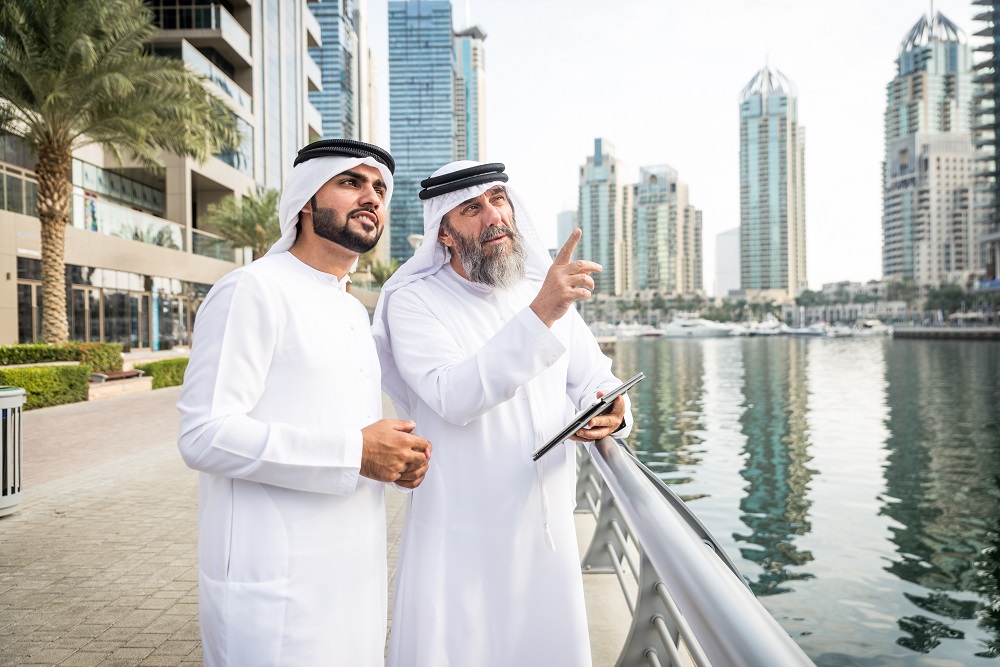Understanding Dubai’s Labor Laws for Job SeekersGoals

Ok so here’s the thing about Understanding Dubai’s Labor Laws for Job SeekersGoals…. Let me share what I wish someone had told me when I first started job hunting here in 2023. I was sitting in this cramped shared apartment in JLT, refreshing LinkedIn every 5 minutes and having ZERO clue about my rights as a potential employee.
Table of Contents
- The Foundation: Why Understanding Dubai’s Labor Laws for Job SeekersGoals Actually Matters
- The Contract Reality That Nobody Talks About
- The Money Talk: Salaries and What’s Actually Legal
- Salary Structures That’ll Make Your Head Spin
- Negotiation Power (Or Lack Thereof)
- Working Hours and Overtime: The Reality Check
- The Overtime Myth
- Remote Work and Flexibility
- Leave Entitlements: Better Than You Think
- Sick Leave and Medical Benefits
- Maternity and Paternity Leave
- Termination and End of Service: What Happens When Things End
- End of Service Gratuity – Your Financial Safety Net
- Resignation vs Being Fired
- The Visa Dance
- Understanding Dubai’s Labor Laws for Job SeekersGoals: The NOC Situation
- Getting an NOC: The Politics of It
- Contract Types: Limited vs Unlimited (RIP)
- What This Means for Job Security
- Health Insurance: The Good and the Not-So-Good
- Insurance Quality Varies Wildly
- Probation Periods: Your Vulnerable Time
- My Probation Horror Story
- Women’s Rights in the Workplace
- Pregnancy and Career
- Training Bonds and Non-Compete Clauses
- The Training Bond Trap
- Labor Disputes: When Things Go Seriously Wrong
- The MOHRE Process
- Practical Tips from Someone Who’s Been There
- Before You Sign
- During Employment
- When Leaving
- The Cultural Reality
- What’s Changing and What’s Coming
- My Biggest Learning
- When to Get Professional Help
- Final Reality Check
I remember my first interview – this HR person started throwing around terms like “limited contract,” “gratuity,” and “NOC” like I was supposed to know what they meant. I just nodded along like yeah, totally, while internally panicking because Understanding Dubai’s Labor Laws for Job SeekersGoals felt like deciphering hieroglyphics.
Fast forward two years, three jobs, one employment dispute, and countless conversations with friends navigating thier own work situations – and I’ve learned SO much about what you actually need to know vs what sounds scary but isn’t really relevant to most of us.
So let me break down Understanding Dubai’s Labor Laws for Job SeekersGoals in a way that actually makes sense for real people looking for real jobs.
The Foundation: Why Understanding Dubai’s Labor Laws for Job SeekersGoals Actually Matters
Here’s what I didn’t realize when I first started job hunting – the UAE has pretty comprehensive labor protections, but only if you know about them and how to use them. The Federal Decree-Law No. 33 of 2021 governs most employment relationships, and it’s actually more employee-friendly than I expected.
But here’s the catch with Understanding Dubai’s Labor Laws for Job SeekersGoals – everything depends on your employment contract. And I mean EVERYTHING. Your salary, benefits, working hours, vacation time, termination conditions… if it’s not written down, it basically doesn’t exist from a legal standpoint.
The Contract Reality That Nobody Talks About
My first contract was 8 pages long, and I’ll be honest – I skimmed it. Big mistake. Three months later when I wanted to take some personal leave, I discovered my contract only allowed 15 days of annual leave instead of the 21 I thought I was getting. The HR conversation was… awkward.
Always read your contract. Like, actually read it. Take it home, google the terms you dont understand, ask questions. Any employer worth working for will respect that you want to understand what you’re signing.

The Money Talk: Salaries and What’s Actually Legal
This is where Understanding Dubai’s Labor Laws for Job SeekersGoals gets interesting (and sometimes frustrating). The UAE doesn’t have a universal minimum wage, but different emirates and sectors have their own requirements.
Salary Structures That’ll Make Your Head Spin
Most salaries here are structured as “basic salary” plus allowances. This matters WAY more than I initially realized because several benefits are calculated based on your basic salary, not your total package.
For example, my friend Sarah got offered AED 18,000 per month – sounded great! But only AED 7,000 was basic salary, the rest was housing and transport allowances. When she left after 18 months, her end-of-service gratuity was calculated on that AED 7,000, not the full package. She expected around AED 10,000 but got less than AED 4,000.
The lesson? Always ask for the breakdown and understand how it affects your benefits when you’re Understanding Dubai’s Labor Laws for Job SeekersGoals.
Negotiation Power (Or Lack Thereof)
Salary negotiation here can be… challenging. There’s often less flexibility than in Western countries, especially for junior positions. But don’t give up entirely. I successfully negotiated my current salary up by AED 2,000 by doing research on market rates and presenting it professionally.
Pro tip: Use salary surveys from companies like Michael Page or Robert Walters. Having data makes your case much stronger.
Working Hours and Overtime: The Reality Check
The standard working week is 48 hours, but most companies I’ve worked for operate on a 45-hour week (9 hours x 5 days). Understanding Dubai’s Labor Laws for Job SeekersGoals means knowing that anything beyond these hours should be compensated.
The Overtime Myth
Here’s something that shocked me – many positions are exempt from overtime pay. If you’re in a “senior” or “managerial” role (and the definition can be pretty broad), you might not get overtime compensation even if you work 60-hour weeks.
I learned this when I was putting in crazy hours at my second job. When I asked HR about overtime pay, they laughed and said my position was “exempt.” Always clarify this during the interview process.
Remote Work and Flexibility
Post-COVID, many companies have become more flexible, but this needs to be clearly stated in your contract. I know people working fully remote while living in other countries, but it requires proper documentation and visa arrangements.
Leave Entitlements: Better Than You Think
One positive aspect of Understanding Dubai’s Labor Laws for Job SeekersGoals is the leave entitlements. After completing one year of service, you’re entitled to at least 21 days of annual leave, plus public holidays.
Sick Leave and Medical Benefits
You get up to 90 days of sick leave per year (with medical certificate), but the pay structure is:
- First 15 days: Full pay
- Next 30 days: Half pay
- Remaining days: Unpaid
I used this when I had dengue fever last year. Having proper medical documentation from an approved clinic was crucial.
Maternity and Paternity Leave
Maternity leave is 60 days (45 at full pay, 15 at half pay), and fathers get 5 days. This is actually quite progressive compared to many countries. My colleague just took her maternity leave and the process was smoother than she expected.
Termination and End of Service: What Happens When Things End
This is probably the most crucial part of Understanding Dubai’s Labor Laws for Job SeekersGoals that people don’t think about until it’s too late.
End of Service Gratuity – Your Financial Safety Net
If you complete at least one year of service, you get gratuity when you leave:
- 21 days of basic salary for each year of the first 5 years
- 30 days of basic salary for each year after that
My friend Mark worked for 4 years and got almost AED 25,000 when he left. But remember – this is calculated on basic salary only.
Resignation vs Being Fired
If you resign, you typically need to give 30-90 days notice (check your contract). If you’re terminated without cause, they need to pay you for the notice period.
But here’s where Understanding Dubai’s Labor Laws for Job SeekersGoals gets tricky – if you’re fired “for cause,” you might lose your gratuity. And “cause” can be interpreted pretty broadly. I’ve seen people lose everything for things like “performance issues” that seemed more like personality conflicts.
The Visa Dance
Your employment visa is tied to your job. When you resign, you technically have 30 days to find new employment or leave the country. But in practice, the process is more flexible, especially if your new employer is handling the visa transfer.

Understanding Dubai’s Labor Laws for Job SeekersGoals: The NOC Situation
The No Objection Certificate (NOC) is crucial if you want to change jobs without leaving the country. Without it, you might face a 6-month employment ban.
Getting an NOC: The Politics of It
Most employers will give you an NOC if you resign professionally and fulfill your notice period. But some companies use the NOC as leverage. I know someone who had to negotiate their NOC as part of their resignation – it was basically held hostage.
The good news? The government has been making this process more flexible, and the employment ban rules are less strict than they used to be.
Contract Types: Limited vs Unlimited (RIP)
Major change alert! As of 2022, unlimited contracts are being phased out. New contracts are limited-term, typically 1-3 years. This actually gives both employers and employees more flexibility.
What This Means for Job Security
Initially, I was worried about job security with limited contracts. But honestly? It’s forced me to be more proactive about my career development and salary negotiations. When renewal time comes, everything’s on the table.
Health Insurance: The Good and the Not-So-Good
Every employer must provide health insurance – this is non-negotiable in Understanding Dubai’s Labor Laws for Job SeekersGoals. But “basic” insurance can be… very basic.
Insurance Quality Varies Wildly
My first job’s insurance barely covered anything beyond emergency care. My current job provides comprehensive coverage including dental and optical. Always ask about insurance details during the interview process.
If the insurance is inadequate, consider getting supplementary coverage. It’s worth the investment, especially if you have pre-existing conditions.
Probation Periods: Your Vulnerable Time
Most contracts include a probation period (up to 6 months max). During this time, either party can terminate with minimal notice – sometimes just one day.
My Probation Horror Story
I thought I was safe after 3 months of probation, so I signed a lease and made other financial commitments. Month 5, new management decided to “restructure” and I was out with one day’s notice. Financially devastating.
Always understand your probation terms and plan accordingly. Don’t make major financial commitments until you’re past probation.
Women’s Rights in the Workplace
Understanding Dubai’s Labor Laws for Job SeekersGoals includes knowing that the UAE has been progressive about women’s workplace rights. Equal pay for equal work is legally mandated, and discrimination based on gender is prohibited.
Pregnancy and Career
Companies cannot terminate employees for getting pregnant, and they must hold your position during maternity leave. I’ve seen this enforced when companies tried to “restructure” pregnant employees out of their roles.
Training Bonds and Non-Compete Clauses
Some companies include clauses requiring you to repay training costs if you leave within a certain period. I’ve seen bonds ranging from AED 30,000 to AED 150,000.
The Training Bond Trap
Before signing any training bond, ask yourself: Is this training beneficial for my career generally, or just for this specific role? If it’s general career development, a bond might be reasonable. If it’s company-specific systems training, be cautious.
Labor Disputes: When Things Go Seriously Wrong
Nobody wants to think about this part of Understanding Dubai’s Labor Laws for Job SeekersGoals, but sometimes employment relationships go sour.
The MOHRE Process
For disputes under AED 50,000, MOHRE makes binding decisions. For larger amounts, it goes to court. The process is actually quite fair, but documentation is everything.
I had to use this process once when an employer withheld my final salary. Took about 6 weeks, but I got my money plus penalties they had to pay. Keep EVERYTHING – emails, contracts, bank statements.

Practical Tips from Someone Who’s Been There
After going through Understanding Dubai’s Labor Laws for Job SeekersGoals multiple times, here’s my real-world advice:
Before You Sign
- Read the entire contract – yes, even the boring parts
- Understand your basic vs total salary breakdown
- Clarify working hours and overtime policies
- Ask about the company’s NOC policy
- Understand probation period terms completely
During Employment
- Document everything important in writing
- Build good relationships – they matter here more than you think
- Keep copies of all official documents
- Understand your insurance coverage and limitations
- Plan your career moves strategically
When Leaving
- Give proper notice as per your contract
- Request your experience certificate immediately
- Ensure all dues are settled before your last day
- Get your NOC if you’re staying in the UAE
- Follow up on your gratuity payment
The Cultural Reality
Understanding Dubai’s Labor Laws for Job SeekersGoals isn’t just about legal knowledge – it’s about understanding workplace culture. Hierarchy is more pronounced here, personal relationships matter a lot, and patience is often required for bureaucratic processes.
This isn’t necessarily good or bad, just different. Adapting to these cultural norms while knowing your legal rights is key to success.
What’s Changing and What’s Coming
The UAE government has been quite progressive about updating labor laws. Recent changes include:
- More flexible working arrangements
- Better protection for domestic workers
- Streamlined dispute resolution processes
- Enhanced rights for people of determination (disabilities)
I expect we’ll see continued improvements in employee protections and probably some form of minimum wage implementation across all sectors.
My Biggest Learning
The most important thing I’ve learned about Understanding Dubai’s Labor Laws for Job SeekersGoals? Knowledge is power, but relationships and professionalism matter just as much.
You can know all the laws perfectly, but if you burn bridges or handle situations poorly, your legal rights won’t save you from a damaged reputation in what’s actually a pretty small business community.
When to Get Professional Help
Don’t hesitate to consult employment lawyers if you’re facing serious issues. The consultation fees (usually AED 500-1000) are worth it for peace of mind. I wish I’d done this earlier in my career.
Also, your embassy might have commercial sections that can provide guidance on employment issues for their nationals.
Final Reality Check
Understanding Dubai’s Labor Laws for Job SeekersGoals is important, but don’t let fear of the unknown prevent you from pursuing opportunities. The vast majority of employment relationships here are positive and straightforward.
Yes, there are horror stories (and I’ve shared some), but there are also millions of successful careers built here. Focus on finding good employers, understanding your rights, and building your professional network.
The UAE offers incredible opportunities for career growth and tax-free income. Just go in with your eyes open and your knowledge up to date.
P.S. This info is from September 2025 but tbh things change fast in Understanding Dubai’s Labor Laws for Job SeekersGoals so double check everything with official sources! And if ur reading this later… hope things have gotten even better for job seekers lol
Remember, Understanding Dubai’s Labor Laws for Job SeekersGoals is an ongoing process, not a one-time thing. Stay informed, stay professional, and don’t be afraid to ask questions. You’ve got this! 💪
Copyright 2026 . All rights reserved for DubaiFindJob









No Comments